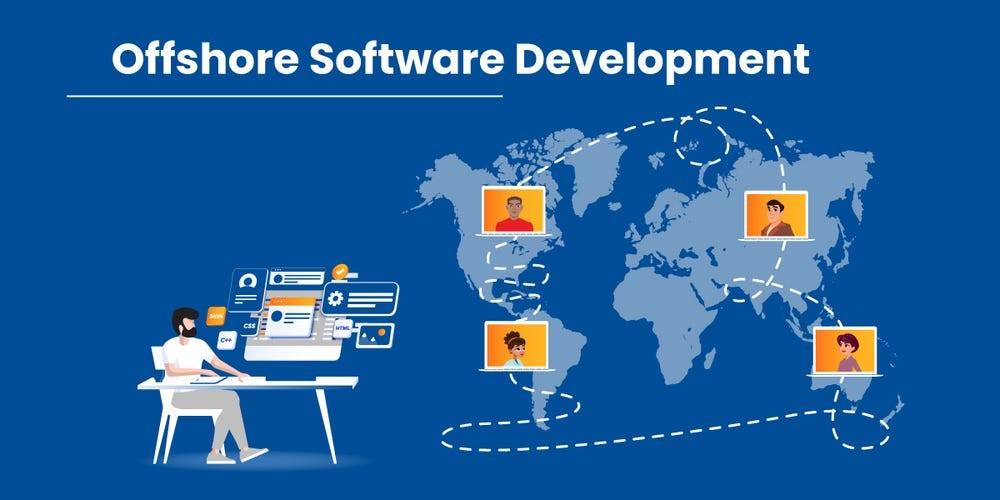Understanding Offshore Outsourcing
Offshore outsourcing has become a significant trend in the global business landscape, particularly in the realm of software development. This practice involves hiring third-party companies located in different countries to handle specific business functions or tasks. Many businesses choose offshore outsourcing to reduce costs, access specialized skills, and improve efficiency.Over the years, offshore outsourcing has evolved from a novel concept to a core strategy employed by companies around the world. The rise of technology, particularly in communication and project management tools, has made it easier for businesses to collaborate with teams across the globe.
What is an Offshore Outsourcing Software Development Company?
An offshore outsourcing software development company is a business that provides software development services to clients located in another country. These companies typically have teams of skilled developers, designers, and project managers who can work on various aspects of software development, from initial concept and design to coding, testing, and maintenance.The primary distinction between offshore and onshore outsourcing lies in the location of the service provider. Offshore outsourcing refers to contracting services from a different country, while onshore outsourcing involves hiring service providers within the same country.
Key Benefits of Working with an Offshore Outsourcing Software Development Company
- Cost Efficiency: One of the most compelling reasons to choose an offshore outsourcing software development company is the potential for significant cost savings. Countries with lower labor costs allow businesses to hire skilled professionals at a fraction of the price they would pay locally. For example, the average hourly rate for software developers in the United States can range from $100 to $150, while in countries like India or Ukraine, it can be as low as $25 to $50.
- Access to Global Talent: Offshore outsourcing provides access to a broader pool of talent and expertise. Many offshore companies employ highly skilled software developers who are proficient in the latest technologies and programming languages. This diversity can enhance creativity and innovation in software solutions.
- Focus on Core Business Functions: By outsourcing software development, businesses can free up internal resources, allowing them to concentrate on their core functions. This enables companies to enhance productivity and efficiency while leaving specialized tasks to experts in those fields.
Common Challenges in Offshore Outsourcing Software Development
While offshore outsourcing offers numerous benefits, it is not without its challenges. Understanding these challenges can help businesses navigate them effectively.
Communication Barriers
Language and cultural differences can create communication challenges between clients and offshore teams. Misunderstandings can lead to project delays and misaligned expectations. To overcome this, companies should establish clear communication protocols, utilize collaboration tools, and consider hiring bilingual project managers who can bridge the gap.
Time Zone Differences
Time zone disparities can complicate project management and collaboration. For instance, a company in the United States working with a team in India may face delays in communication. To mitigate this, businesses can schedule regular meetings during overlapping working hours and employ project management tools that facilitate asynchronous communication.
Quality Control
Maintaining quality standards can be a concern when outsourcing software development. Companies must implement rigorous testing and quality assurance processes to ensure that the final product meets their expectations. Establishing clear quality metrics and conducting regular checkpoints throughout the project can help maintain high standards.
How to Choose the Right Offshore Outsourcing Software Development Company
Selecting the right offshore outsourcing software development company is crucial for success. Here are some factors to consider:
Assessing Company Credentials
Before partnering with an offshore company, it’s essential to assess their credentials. Review their portfolio and client testimonials to gauge their expertise and reliability. Look for key certifications such as ISO 9001, which indicates a commitment to quality management practices.
Evaluating Technical Expertise
Ensure that the offshore company possesses the necessary technical skills for your project. This includes familiarity with relevant programming languages, frameworks, and tools. Ask for examples of similar projects they have completed successfully.
Understanding Pricing Models
Offshore outsourcing companies may offer various pricing models, including fixed pricing, hourly rates, or dedicated teams. Understanding the pricing structure and ensuring it aligns with your budget is vital. Don’t hesitate to negotiate terms that work for both parties.
The Offshore Outsourcing Process
Initial Consultation and Requirement Gathering
The first step in working with an offshore outsourcing software development company is the initial consultation. During this phase, businesses should clearly outline their requirements, objectives, and project timelines. This step is crucial for aligning expectations and ensuring that both parties are on the same page.
Project Planning and Development
Once the requirements are established, the offshore team will begin project planning and development. Many companies adopt Agile methodologies to facilitate iterative development and quick adjustments based on feedback. Tools like Jira or Trello can help manage tasks and track progress.
Testing and Quality Assurance
Testing is a critical component of the software development lifecycle. An effective offshore outsourcing software development company will have dedicated QA teams responsible for conducting thorough testing at various stages of the project. This includes unit testing, integration testing, and user acceptance testing (UAT) to ensure that the final product is free of defects.
Real-World Examples of Successful Offshore Outsourcing Software Development
Several companies have successfully leveraged offshore outsourcing to enhance their software development capabilities.
Case Study: Slack
Slack, the popular collaboration platform, outsourced parts of its software development to a team in Canada while maintaining its headquarters in the United States. By doing so, they were able to tap into a skilled talent pool at competitive rates, allowing them to scale their development efforts rapidly.
Case Study: WhatsApp
WhatsApp, now a part of Facebook, initially outsourced its development to a small team in Eastern Europe. The decision to work with an offshore team allowed them to create a robust messaging platform while keeping operational costs low.
Future Trends in Offshore Outsourcing Software Development
As technology continues to evolve, so too will the landscape of offshore outsourcing. Some emerging trends to watch include:
- Increased Automation: The rise of AI and automation tools will streamline many aspects of software development, reducing the need for manual tasks and enhancing efficiency.
- Focus on Cybersecurity: As data breaches become more common, offshore outsourcing companies will need to prioritize cybersecurity measures to protect sensitive information.
- Remote Work Models: The shift towards remote work will likely continue, enabling companies to hire talent from anywhere in the world without being tied to specific locations.
Conclusion
In conclusion, engaging with an offshore outsourcing software development company can be a strategic move for businesses looking to enhance their software capabilities while reducing costs and accessing global talent. While challenges exist, proper planning, clear communication, and careful selection of partners can significantly increase the likelihood of a successful outcome.
Frequently Asked Questions (FAQs)
- What are the risks associated with offshore outsourcing?
- Risks include communication barriers, time zone differences, and potential quality control issues. However, these can be mitigated with careful planning and management.
- How long does it take to start an offshore outsourcing project?
- The timeline can vary, but initial consultations and requirement gathering typically take a few weeks. Development timelines depend on the project’s complexity.
- Can I maintain control over my project when outsourcing?
- Yes, maintaining control is possible through regular communication, setting clear expectations, and utilizing project management tools.
- What types of software development can be outsourced?
- Many aspects can be outsourced, including web development, mobile app development, software testing, and maintenance.
By understanding the nuances of working with an offshore outsourcing software development company, businesses can make informed decisions that propel their growth and innovation forward.



